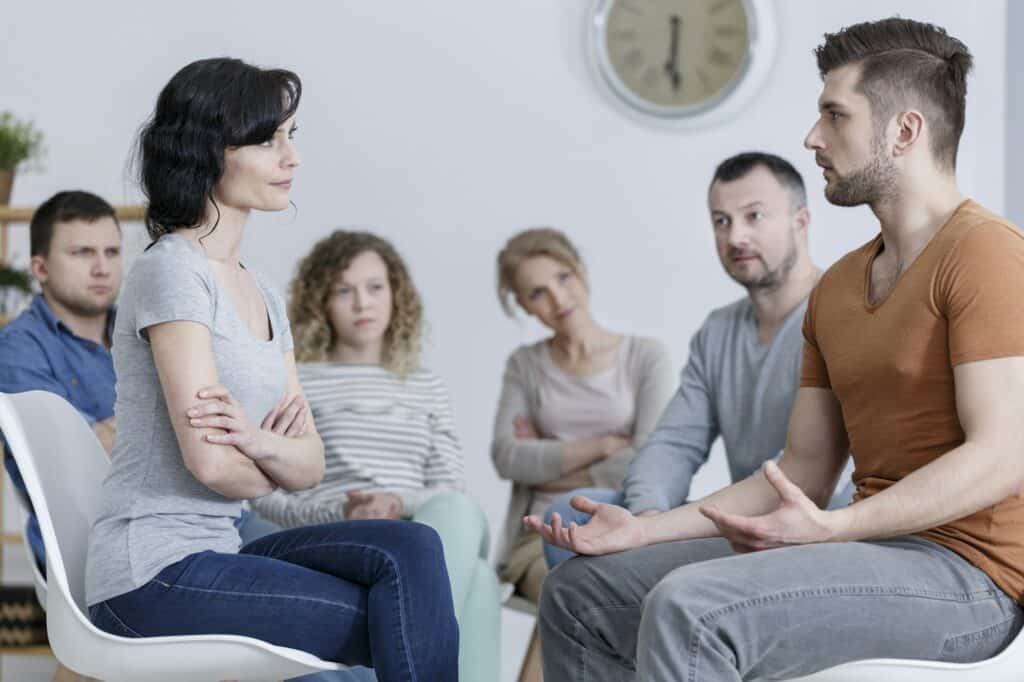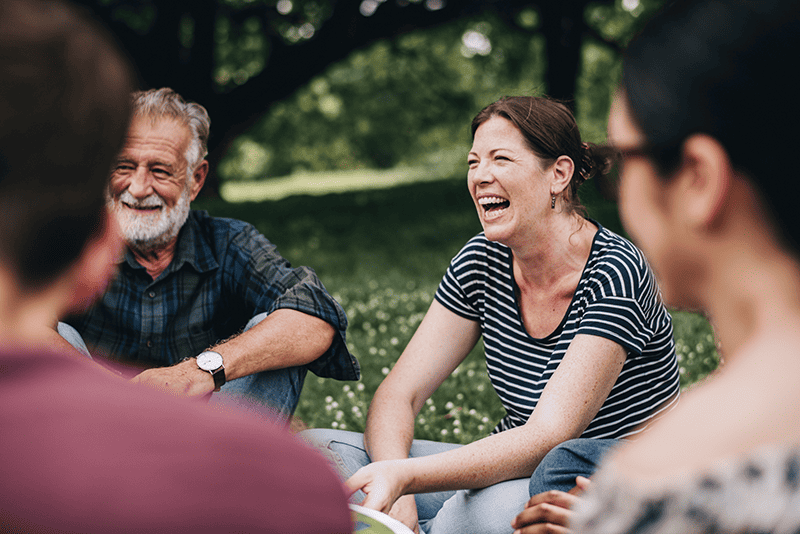Medical department
Miami Valley Hospital Emergency and Level I Trauma Center
1 Wyoming St, Dayton, OH 45409
(937) 208-8000
Local Resources & Information for Dayton, Ohio
If you are near Dayton, Ohio area and need help now,
call (844) 297-3995

Situated near Dayton, Ohio, White Light is a state-of-the-art addiction treatment center dedicated to developing life-changing addiction recovery processes. The center guarantees an unrivaled 1:1 client-to-staff ratio, facilitating tailored care for each patient.
White Light stands out with its extensive holistic offerings and specialized recovery programs, designed scientifically to tackle individual addiction challenges. Backed by a potent blend of science-based integrative medicine services, the center also places high emphasis on a family support system in the holistic therapeutic journey.
Grounded in compassion and dedication, White Light serves as a beacon of hope and solace for those grappling with addiction. With their evidence-based treatment modalities, individual and group therapy, the center is genuinely a sanctuary that supports and transforms lives.

Between 2010 and 2015, Montgomery County saw 1,168 drug overdose deaths, ranking among Ohio’s highest. Unintentional overdoses surged by 104% since 2010, leading to increased hospital admissions, ER visits, and emergency calls. By June 19, 2022, 133 overdose deaths occurred in the county. In 2016, it earned the title “overdose capital” with 566 fatal overdoses.
In 2020, Ohio witnessed over 5,000 drug overdose fatalities, marking a 25% surge compared to 2019. Specifically, in Dayton in 2002, heroin/morphine contributed to 44 deaths, surpassing any other illicit drug. Among these fatalities, 11 were attributed to heroin/morphine overdoses. Additionally, cocaine-induced deaths numbered 39, ranking second only to heroin/morphine fatalities in that year.
Dayton, Ohio, like many communities nationwide, has been severely impacted by drug addiction, especially the opioid crisis. Montgomery County, where Dayton is located, stands out as one of Ohio’s hardest-hit areas, grappling with high rates of opioid-related deaths and addiction. Fortunately, treatment facilities, rehabilitation centers, and support groups are accessible to aid individuals in overcoming addiction and reclaiming their lives.

Miami Valley Hospital Emergency and Level I Trauma Center
1 Wyoming St, Dayton, OH 45409
(937) 208-8000
335 W Third St, Dayton, OH 45402
(937) 333-2677
300 N Main St, Dayton, OH 45402
(937) 333-4500
Montgomery County Behavioral Health Emergency Services Crisis Receiving Center
601 S Edwin C Moses Blvd, Dayton, Ohio 45417, USA 937-458-3680 Open 24 hours
Samaritan Crisis Care 601 S Edwin C Moses Blvd, Dayton, OH 45417 (937) 224-4646 Open 24 hours
Suicide Prevention Center
9255 N Main St, Dayton, OH 45415 +18003204357
Kettering Health Dayton – Emergency Center
405 W Grand Ave, Dayton, OH 45405 +19377233210
Open 24 hours
Dayton VA Medical Center Emergency Room
4100 W Third St, Dayton, OH 45417
+19372686511
The Anxiety Center
2331 Far Hills Ave, Dayton, OH 45419
+15135472861 Open 9am-6pm

Monday, 6:00 am
3040 Valleywood Dr
Dayton, OH 45429
Monday, 10:00 am
5235 N Main St
Dayton, OH 45415
Thursday, 12:00 pm
20 W First St
Dayton, OH 45402
Thursday, 10:00 AM 2206 East 3rd Street
Dayton, Ohio 45403
Thursday, 06:30 PM 544 Xenia Avenue
Dayton, Ohio 45410
Thursday, 07:30 PM 401 South Paul Lawrence Dunbar Street
Dayton, Ohio 45402
5235 N Main St
Dayton, OH 45415
Sunday
10:00 amSpiritual Maint. Group
In-person
NoonNever on the Weekend
In-person
7:30 pmForest Park Group*
In-person
Wednesday
NoonKeep It Simple Group
In-person
5:30 pmSerenity at 5:30 *
In-person
7:30 pmWednesday Nite Men’s Group*
(Men)
In-person
7:30 pmWednesday Nite Women’s Group*
(Women)
In-person
Dayton, Montgomery County, offers sober fun with rich cultural attractions such as the National Museum of the US Air Force, Carillon Historic Park, and Schuster Performing Arts Center. Enjoy outdoor activities at Five Rivers MetroParks or discover art at The Dayton Art Institute. Don't forget to explore the Oregon Historic District.
Explore over 360 aircraft and missiles from the early days of flight to modern times. Visit exhibits on World War II, the Cold War, and the Space Race. Learn about the history of aviation and the role of the Air Force in defending the United States. Enjoy interactive displays and educational programs.
In Carillon Historical Park, visitors can explore over 30 historic buildings, including the original 1905 Wright Flyer III, the world’s first practical airplane. The park also features exhibits on Dayton’s history, a working train display, and a replica of an early 1900s street. Outdoor activities such as hiking and picnicking are also available.
The Dayton Art Institute in Dayton, Montgomery County offers a wide range of activities for art lovers. Visitors can explore the museum’s diverse collection of art from around the world, attend special events and exhibitions, participate in educational programs and classes, and enjoy the beautiful outdoor spaces and gardens.
The Benjamin & Marian Schuster Performing Arts Center in Dayton offers a variety of entertainment options such as Broadway shows, musical performances, dance productions, and more. Visitors can also explore art exhibitions, attend lectures, and participate in educational programs. The center’s beautiful architecture and state-of-the-art facilities make it a must-visit destination in Montgomery County.

An addiction treatment facility is a specialized medical facility that provides personalized care and support to individuals struggling with substance abuse or other forms of addiction. These facilities offer a range of services including detoxification, therapy, counseling, medication management, and support groups. The goal of an addiction treatment facility is to help individuals overcome their dependencies, address underlying issues, and learn healthy coping mechanisms to prevent relapse. Treatment plans are tailored to each individual’s needs and may include a combination of individual and group therapy, family involvement, and aftercare support to promote long-term recovery and sobriety.


An addiction treatment facility is for individuals who are struggling with substance abuse or behavioral addictions such as gambling or eating disorders. These facilities provide a safe and supportive environment for individuals to detox, receive therapy, and learn coping mechanisms to overcome their addiction. They are equipped to help people of all ages and backgrounds who are ready to make a change and work towards a life of sobriety. Addiction treatment facilities also offer support for families and loved ones affected by their loved one’s addiction, helping them to heal and rebuild relationships.
Are you ready to transform your life and take back control from addiction? Don’t wait any longer to start your journey towards healing and recovery. Take the first step today by reaching out for support and guidance. Your future self will thank you for making this important decision. Make the change now.
Some common types of treatment programs offered at addiction treatment centers include:
1. Inpatient detoxification: Medical supervision and support to safely manage withdrawal symptoms.
2. Residential treatment: 24/7 care and support in a structured environment.
3. Partial hospitalization programs (PHP): Intensive treatment during the day with the flexibility to return home at night.
4. Intensive outpatient programs (IOP): Structured treatment sessions several times a week while allowing clients to live at home.
5. Outpatient programs: Less intensive treatment options for individuals with a strong support system at home.
6. Dual diagnosis treatment: Addressing both addiction and co-occurring mental health disorders.
7. Individual therapy: One-on-one counseling sessions with a licensed therapist.
8. Group therapy: Peer support and shared experiences in a group setting.
9. Alternative therapies: such as art therapy, mindfulness meditation, yoga, or equine therapy.
10. Family therapy: Involving family members in the treatment process to address family dynamics and relationships.
It’s important to find a treatment program that suits your individual needs and preferences.
The length of treatment can vary depending on the individual’s needs and progress, but it often lasts anywhere from 30 days to 90 days. Some individuals may benefit from longer-term treatment or a step-down approach, transitioning from intensive inpatient care to outpatient programs. Ultimately, the goal is to provide the necessary support and resources for lasting recovery.
The costs involved in addiction treatment centers can vary depending on the type of treatment program and individual insurance coverage. In general, the costs may include the initial assessment, detox services, therapy sessions, medication management, room and board (if residential treatment), and aftercare services. Many addiction treatment centers do accept insurance, but it’s important to check with them to see if your specific insurance plan is accepted and what your coverage includes. Some centers may also offer financing options or sliding scale fees based on income. It’s recommended to reach out to the treatment center directly to discuss the costs and payment options available.
A typical day in an addiction treatment center usually includes a structured schedule of therapy sessions, support groups, recreational activities, and individual counseling. Patients usually start their day with breakfast followed by group therapy or individual counseling sessions. They may also participate in educational workshops, fitness activities, and holistic treatments such as yoga or meditation. Meals are provided at set times and there may be opportunities for outdoor activities or free time for reflection. Evening activities often include support group meetings or recreational activities. Overall, the day is carefully planned to provide patients with a balance of therapeutic interventions and opportunities for relaxation and personal growth.
Aftercare and support post-treatment typically include ongoing individual counseling or therapy, group therapy sessions, support groups such as 12-step programs, referrals to sober living facilities, relapse prevention education, family therapy programs, and access to mental health professionals. Many addiction treatment centers also offer alumni programs to help individuals stay connected to a supportive community after completing their primary treatment. Additionally, some facilities provide online resources, hotlines, and follow-up sessions to ensure individuals have ongoing support in their recovery journey.